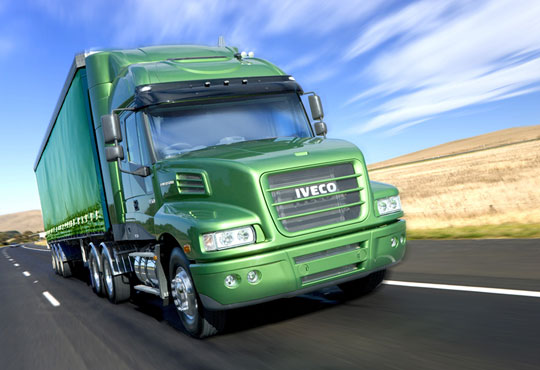
How Trucking Companies Can Stay Compliant with Environmental Regulations
CIOTech Outlook Team | Monday, 16 June 2025, 07:22 IST
 Environmental compliance is no longer optional for trucking companies. With stricter regulations and increasing pressures to adopt sustainable practices, companies must adapt to remain competitive. One crucial way to achieve this is by implementing robust processes through truck dispatch services. These services can streamline operations and help companies meet environmental requirements effectively. Below, we’ll discuss key regulations, the role of technology, and best practices for staying compliant in an evolving industry.
Environmental compliance is no longer optional for trucking companies. With stricter regulations and increasing pressures to adopt sustainable practices, companies must adapt to remain competitive. One crucial way to achieve this is by implementing robust processes through truck dispatch services. These services can streamline operations and help companies meet environmental requirements effectively. Below, we’ll discuss key regulations, the role of technology, and best practices for staying compliant in an evolving industry.
Why Environmental Compliance Matters in Trucking
The trucking industry plays a significant role in global logistics, but it’s also a major contributor to greenhouse gas emissions. With transportation accounting for over a quarter of total emissions in many regions, regulators are increasingly focusing on reducing the environmental footprint of trucking operations. Compliance with these regulations is essential for several reasons:
- Avoiding penalties. Governments impose hefty fines for non-compliance with emissions standards and other environmental laws. Staying compliant minimizes financial risk.
- Improving public perception. Customers increasingly prefer eco-conscious companies. Environmental compliance demonstrates a commitment to sustainability and helps build trust.
- Reducing operating costs. Many eco-friendly practices, such as improving fuel efficiency or adopting alternative fuel vehicles, lower long-term operational costs.
By prioritizing environmental compliance, trucking companies can align their operations with both legal requirements and customer expectations while improving their bottom line.
Key Environmental Regulations Trucking Companies Need to Know
Understanding the regulatory landscape is the first step toward compliance. Below are some of the most critical environmental standards that affect the trucking industry.
Emission Standards
Governments worldwide have implemented strict emission standards to reduce air pollution. For example, the U.S. Environmental Protection Agency (EPA) has established the Clean Truck Plan, which sets stringent limits on nitrogen oxide (NOx) emissions. Similar initiatives in Europe include the Euro VI standard, which regulates carbon dioxide (CO2) and particulate matter emissions.
To comply, trucking companies must ensure their fleets meet these standards by using newer, cleaner vehicles or retrofitting older ones.
Fuel Efficiency Requirements
Programs such as the EPA’s SmartWay initiative encourage companies to adopt fuel-efficient technologies and practices. These guidelines aim to reduce fuel consumption, lower costs, and minimize emissions. Companies equipped with aerodynamic trailers, low-rolling-resistance tires, and efficient engines can significantly improve their fuel efficiency.
Idle Reduction Policies
Excessive idling wastes fuel and contributes to air pollution. Many states and municipalities have established anti-idling regulations that limit how long trucks can idle. Adopting idle-reduction technologies, like auxiliary power units (APUs), ensures compliance while saving money.
Alternative Fuel Mandates
Some regions incentivize or mandate the use of alternative fuels such as natural gas, biodiesel, or electricity. Adopting these fuels not only ensures compliance but can also lower fuel costs over time.
Leveraging Technology for Environmental Compliance
Technology is a critical enabler for trucking companies aiming to meet environmental standards. Here’s how companies can use modern tools to their advantage:
Telematics for Fleet Monitoring
Telematics systems provide real-time data on vehicle performance, driver behavior, and fuel usage. With this information, fleet managers can monitor emissions and identify inefficiencies. For example, a telematics system can alert managers when a vehicle’s emissions exceed acceptable thresholds, enabling timely maintenance.
Route Optimization Software
Efficient routing reduces unnecessary miles, saving fuel and lowering emissions. Route optimization software considers factors like traffic patterns, road conditions, and delivery windows to identify the most efficient paths for drivers.
Electric and Hybrid Vehicles
Investing in electric or hybrid trucks significantly reduces emissions. While the initial costs may be higher, tax incentives and lower operating costs can make these vehicles a worthwhile long-term investment.
Electronic Logging Devices (ELDs)
ELDs not only help with compliance to Hours of Service (HOS) regulations but also aid in reducing idling time. By tracking engine activity, dispatchers can analyze patterns and implement idle-reduction policies effectively.
Best Practices for Staying Compliant
Compliance is an ongoing effort that requires proactive strategies. Here are actionable steps trucking companies can take to stay ahead of the curve:
Regular Fleet Maintenance
Routine maintenance ensures that vehicles operate efficiently and meet emission standards. For instance, regular oil changes, tire rotations, and engine tune-ups can prevent excess fuel consumption and reduce emissions.
Driver Training Programs
Educating drivers on eco-friendly habits is key. Training programs can teach them to avoid unnecessary idling, maintain steady speeds, and use cruise control to conserve fuel. Drivers should also learn to perform pre- and post-trip inspections to identify potential issues affecting emissions.
Partnering with Environmental Experts
Collaborating with organizations specializing in sustainability can provide insights into the latest compliance strategies. Consultants can also help trucking companies secure grants or tax incentives for adopting green technologies.
Auditing and Reporting
Regular audits identify areas for improvement and ensure regulations are met. Reporting systems can track compliance efforts and measure their impact, fostering transparency with regulators and stakeholders.
Adapting Dispatch Services
Modern truck dispatch services use advanced tools to optimize fleet operations. These services can ensure adherence to environmental standards by automating route planning, monitoring emissions, and reducing idling. Partnering with a dispatch provider experienced in sustainability can make meeting regulations far less daunting.
Final Thoughts
Environmental compliance is a challenge that trucking companies cannot afford to overlook. From emission standards to fuel efficiency requirements, regulatory pressures are driving the need for more sustainable operations. Fortunately, leveraging technology and adopting best practices can make this transition smoother.
By integrating tools like telematics, route optimization software, and automated truck dispatch services, companies can align their operations with environmental goals while improving efficiency and cost-effectiveness. With the right approach, staying compliant can be an opportunity to innovate and lead the way in a more sustainable future for trucking.
CIO Viewpoint
Why Foolproof Facial Recognition Is Key Against...
By Joseph Sudheer Thumma, Global CEO & MD, Magellanic Cloud
National Technology Day 2025: Powering Progress...
By CIOTech Outlook Team
Aligning IT Roadmap with Business Objectives: A...
By Subhash singh Punjabi, CISO & Head Enterprise Architecture, Deepak Fertilisers & Petrochemicals Corporation Ltd
CXO Insights
The Monumental Shift in Traditional PLM Centric...
By Dr. Chandan Chowdhury, Managing Director, Dassault Systemes India
Benchmarking Report Administering organizations...
By Nagi Kasinadhuni, GM, Communications, APAC, Dimensions Data India
Embracing Cloud-Communications for a...







